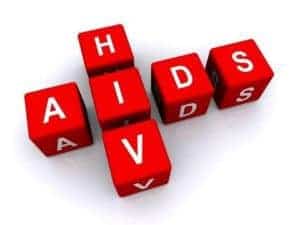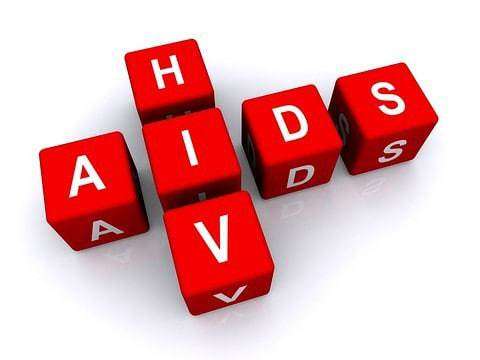 DALLAS, Feb. 5, 2015 /PRNewswire-USNewswire/ — The national #KnowBetterDoBetter movement led by the Black AIDS Institute (BAI) is headed to Dallas, TX and the message is loud and clear- we can end the AIDS epidemic if we fully engage non-medical workers on the frontline of the battle with greater knowledge and skills.
DALLAS, Feb. 5, 2015 /PRNewswire-USNewswire/ — The national #KnowBetterDoBetter movement led by the Black AIDS Institute (BAI) is headed to Dallas, TX and the message is loud and clear- we can end the AIDS epidemic if we fully engage non-medical workers on the frontline of the battle with greater knowledge and skills.
In order to get the word out a town hall meeting will be held on February 6, 2015 from 10:00 a.m.-12:00 p.m. at Dallas County Health and Human Services, 2377 N. Stemmons Fwy. Rm. 627 Dallas, TX 75207. Dallas County Health and Human Services will host what is officially called the “When We Know Better, We Do Better town hall meeting in partnership with AIDS Arms, Inc., Project CONNECTand the BAI.
The town hall meeting will focus on a new study about HIV Workforce Knowledge, Attitudes and Beliefs, Survey produced by the BAI, the Latino Commission on AIDS, the National Alliance of State and Territorial AIDS Directors (NASTAD), Johns Hopkins University- Bloomberg School of Public Health, and Janssen Therapeutics, Division of Janssen Products, LP.
The study found that the majority of the non-medical HIV/AIDS workforce is unfamiliar with the new bio-medical interventions and they are insufficiently knowledgeable about how and when they should be used. The average respondent scored only 63% overall on the knowledge questions, which is a “D” in an academic setting. The central goal of this week’s town hall meeting is to turn these statistics around and to raise awareness about the state of HIV/AIDS science and treatment literacy in the U.S.
The aim of the national #KnowBetterDoBetter tour is to mobilize local communities around the country to develop strategies to raise the science and treatment knowledge in their communities and build integrated systems to increase HIV testing, linkage to care, and retention in care for people living with HIV/AIDS. In addition they also seek to help people at high risk of infection access high impact prevention treatment including the new Pre-Exposure Prophylaxis (PrEP) drugs.
“As the landscape of HIV prevention changes and moves towards more use of biomedical interventions, it is important that communities evolve with it and increase their knowledge of HIV science and treatment. The use of these tools can be much more effective and beneficial with a higher level of literacy from those utilizing them,” said Ashley Innes, Program Director at Project CONNECT.
There have been major developments in both treatment and prevention of HIV/AIDS in the U.S. in recent years. Use of these treatments can suppress the viral load in a person living with HIV/AIDS, which reduces transmissibility by up to 94%. Researchers also believe that when used properly, new Pre-Exposure Prophylaxis (PrEP) drugs can reduce acquisition of HIV by up to 94%. But even with these new advances, U.S. prevention efforts appear to be stalled. There are still some 50,000 new infections occurring per year, and less than 30% of people living with HIV/AIDS in America have their disease under control. The HIV Workforce Knowledge, Attitudes, and Beliefs Surveyassessed the HIV/AIDS science and treatment knowledge of more than 3,600 non-medical respondents from 48 states and U.S. territories.
“Here in Dallas there is an HIV 101 classes that occurs for the workforce yearly. It provides the most current information and statistics on HIV. There are webinars available on topics involving HIV science and treatment to raise HIV science and treatment literacy among individuals working in HIV,” said Innes.
As the nation observes Black AIDS Awareness Day on February 7, 2015, the Black AIDS Institute is calling for a major national campaign to increase HIV science and treatment literacy among the non-medical HIV/AIDS workforce. These 5 critical recommendations are:
- Develop multifaceted training programs for the non-medical HIV/AIDS workforce that meets them where they are to improve their capacity to help screen, link and retain people living with HIV in care, and help HIV negative people stay negative by helping them gain access to high impact prevention including PrEP and other bio-medical interventions.
- Establishment of a nationwide certification program for the HIV/AIDS workforce.
- Conduct a series of consultations with policy makers, people living with HIV, people at high risk of HIV infection, health departments, and community based organizations to create a set of core competencies that people working in HIV must possess.
- Require that non-medical HIV/AIDS workers pursue continuing education on HIV science and treatment issues.
- Dramatically increase the number of people living with HIV in the HIV/AIDS workforce.
The ten #KnowBetterDoBetter tour cities are Atlanta, Los Angeles, San Francisco/Oakland, Dallas, Houston, Broward County, Charlotte, Baltimore, Kansas City, and Chicago. For more information, contact the Black AIDS Institute at Programs@BlackAIDS.org, call (213) 353-3610, or visit www.BlackAIDS.org.



